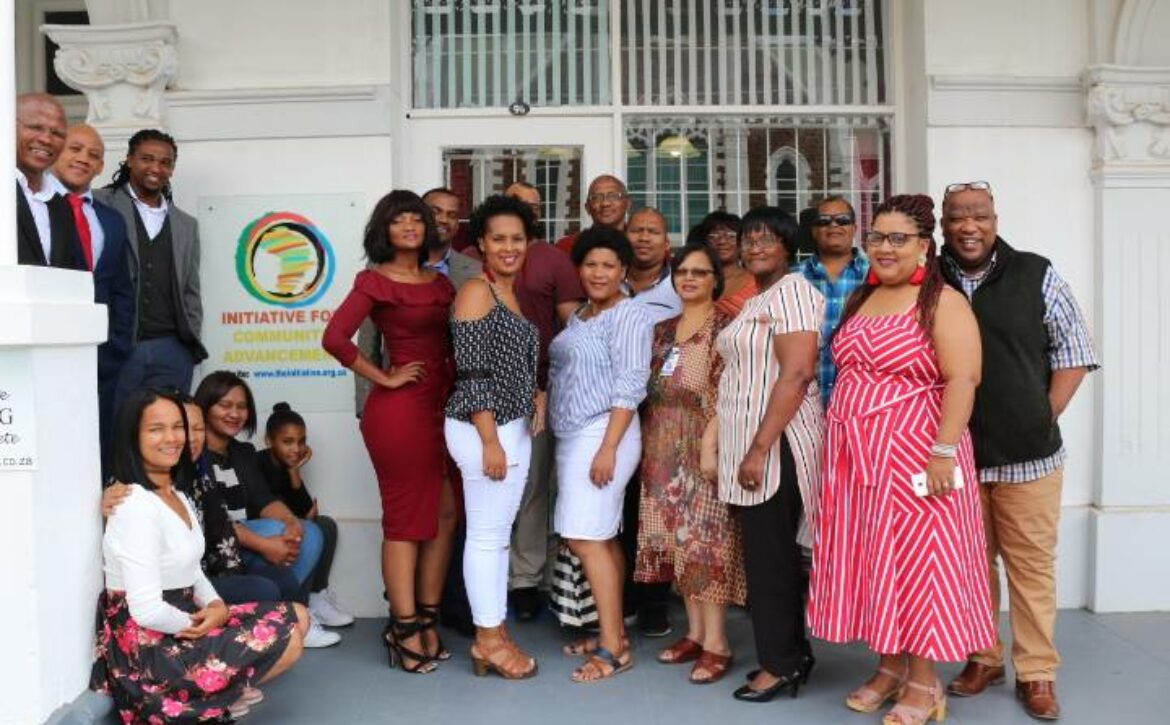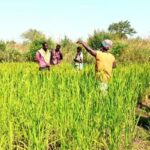Working for the future

Jeremy Maarman discusses the importance of community members from rural communities in the Western Cape to playing more proactive roles in their development
Still a relatively new community-based foundation, the Initiative for Community Advancement (ICA) has been operating as a Community Foundation since the start of 2019, having transitioned from a national youth network that was in operation since 2010.
Its current focus is getting participation from members of the rural communities, particularly from the West Coast, to be more actively involved in their own development processes. Much of this has to do with creating a mechanism and platform for community members and companies to invest financially in community-affiliated funds.
Small but powerful beginnings
The community-based foundation has two active funds, the Bergrivier YouthFund and the Community Rebuilding Fund, for which they have arranged various fundraising activities, like a Golf Day hosted on 29 February 2021. A successful event, it raised R30 000 ($2 100) – evidence to support the drive to make this an annual event. The aim is to arrange one fundraising event every quarter, with the hope of securing R120 000 ($8 200) per year. By encouraging the community to get involved and support these events, they are investing in their own development.
For the past six years, the previous iteration of the organization only had funding from two German donors, one of which ended their support in 2018. The transition from a youth organization into a community-based foundation turned out to be most fortuitous, in light of the COVID-19 pandemic, says Maarman. “For us, the transition was a godsend, because we became very flexible, able to respond to the humanitarian crisis we faced.”
With support from the Southern Africa Trust, the organization was able to respond to the donor’s advice of establishing community affiliated funds, better governance structure and institutional capabilities and capacities. The process enabled them to finetune their work, but it’s the partnership with the Trust that has given them the freedom to institutionalize the foundation as a programme and operation.
Mobilizing support
Reflecting on COVID-19, Jeremy was approached by the municipal manager of Bergrivier Municipality, to provide humanitarian support in the ward in which the organization operated. They started a Meals on Wheels programme, distributing around 200 cooked meals per day, and food parcels, funded from one of their Youth programmes, an NGO and some individual donors, with the Community Foundation matching the contribution. The West Coast District Municipality then asked the foundation to coordinate and distribute food parcels, with a budget of R200 000. Other efforts included the distribution of sanitary packs to young girls, donated by the YouthFund. “All of this was our way of being not just relevant, but responsive to the needs of the time,” recalls Maarman.
Equipped to serve
During the lockdown, the community-based foundation facilitated many online workshops, as well as their training. Marketing efforts, specifically through the good-quality videos they were able to publish on Facebook in collaboration with young entrepreneurs, were successful. With many organizations forced to close their doors during the pandemic, the organization was able to grow, raising close to one million South African Rand in funding. Jeremy looks back on that time with a small amount of regret that they did not document the process and experience of the period enough, perhaps through tech-friendly means with as vlogging.
The partnership with the Southern Africa Trust has helped the organization tremendously. Their support and understanding of the organizational approach of community-based foundations alongside their compassion and understanding of the process alleviated many of the pressures usually associated with foundation work, reveals Maarman. “Southern Africa Trust has afforded us an understanding of our process as a community foundation. They put us at ease so we could do what we needed to do without any feeling of pressure and urgency. It made our transition easier.”
The Southern Africa Trust acknowledges and thanks the Charles Stewart Mott Foundation for their support and partnership of this work.









